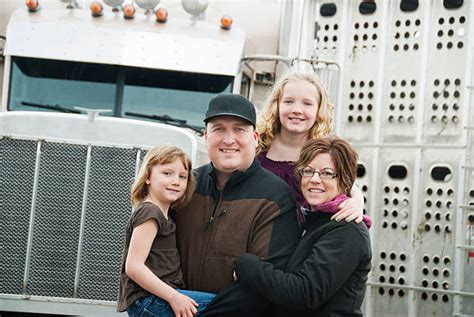One of the questions we ask many of the families we coach in our everyday work and at psychdomain.com is: what do you want things to look like in a year? In other words, what are the problems that need to be addressed to help your family function at a higher level?
Most parents can answer that question easily. In truth, most children can answer the question just as well. This is often one of the problems many of us face when things crop up in life. Many of us were raised in families where the parents were an authoritarian figure and problems were “solved” with the business end of a belt.
My question, even as a teenager, was if all the belts and yelling worked, why were so many of the adults I saw not doing that well? Granted, I came from a rural town but this scenario seemed to play out everywhere I have been in life.
Of course, this is not to say in any way that parents discipline their children out of some sadistic streak or that they do not really care for their children. On the contrary, I believe that virtually every parent loves their child and that they are doing the best they can to help move them along the road to success.
How many of us have said to ourselves, “I’m going to help my kids get the life I never got” then we carried on the same ways of discipline that our parents used hoping for different results?
Obviously, there are a great many people who never question their upbringing and all the wrongs, and rights, which were done in the name of “raising you right”. However, there is a point at which one needs to look at what the purpose of parenting is and adjust their interventions accordingly.
What is an intervention? For our purposes, an intervention is an interaction you have with your child to steer their behavior in a desired direction but in reality an intervention is virtually any interaction you have with your child.
In this light, it’s easy to see how your own personal habits can “rub off” on your children whether intended or not. If your child sees you constantly in a rush, irritable, and quick to snap, don’t be surprised if they begin to act that way as well. If they see you anxious and expecting the worst at every turn, don’t be surprised if they start doing that as well.
Of course, as with all humans, there is always variation between children and their parents but children are always going to learn a great deal of their internalized behaviors from their parents, for better or worse.
With this idea in mind, we invite you as parents to begin thinking about what the purpose of your parenting is. As in any situation, we at psychdomain.com do not wish to tell you what values you should be imparting to your children but we will suggest ways to impart them.
What Kind of Child Do You Want to Raise?
Do you want your child to be stressed and anxious most of the time or do you want them to be confident and prepared? Of course, everyone has an least some anxiety no matter what their disposition but very few people are able to successfully carry it around without consequence. It is anyone’s choice to not discuss their emotions with other people but in the long run the consequence for holding them in is often great. Addictive behaviors, health problems, and violent or depressive outbursts are often the outcome of holding in one’s emotions indefinitely.
The cure for this is to show your child the importance of sharing your emotions with trusted friends or relatives, writing, reading, religious pursuits, or any other type of activity that can help them process their emotions properly.
On the other hand, one can go too far in the other direction and raise a child who is not able to do much of anything without having to discuss it with someone or effectively be led by the hand through any situation. This is not effectively sustainable either.
Seemingly, the ideal intervention for children in this area is to combine the need to be able to connect with others when necessary while helping them build perseverance and patience.
This is where your own habits as a parent come into the picture. How do you handle situations? Are you able to take things in stride or do you overreact every time something unexpected happens? Do you carry through with intended projects or do you start things and move on to something else?
I have personally seen scores of parents throughout my life, including my own, who always expected their children to somehow behave in ways that they did not expect of themselves. “Do as I say not as I do” is not an intervention that is going to turn out well in virtually any situation. It is typically just a cop-out from a parent who feels they have no influence on their children.
Teach Them How to Handle Moments
A loved one passes on. A job is lost due to downsizing. We have a falling out with a friend. How do we handle that situation? Do we panic and fly off the handle or do we process the situation and see it as it is? Are we able to learn from it or even grow from it?
Teaching our children how to “pause” and look at situations in the moment as they are taking place may be the most important skill they can learn.
Do you want them to blow up and react in a way they may regret or use restraint and leave themselves options?
If you read this and think it means they should not react to anything, you may want to look at your own anxiety levels. As Dr. Joseph LeDoux pointed out in his book Anxious, some of the biggest hallmarks of people who suffer from anxiety is difficulty in distinguishing and process threatening situations from safe situations.
Of course, as always, the other extreme is not much better. Having no reaction and allowing things to just happen to you in life is no better than constant overreaction to every perceived threat.
When an unpredictable or distressing situation pops up in life, help your child by processing it out loud, but here’s the catch: process it in a way you would want them to process it, because they likely will whether you do it well and in a measured way or become panicked and overreact.
Teach Them to be Good Detectives
Mistakes happen in life. We make plans and they fall through. Problems crop up and hit us when we least expect it. Sometimes we just don’t think things through. All these scenarios are likely to happen in life at various points.
How do you want your child to handle them? Do you want them to be like an animal who gets burnt by fire and then learns to stay away or do you want them to be able to use their reason and find the pitfalls that could have been avoided as they move forward and try again?
Most adults tend toward the former. They dare to stick their head up and try for something new then, if something adverse happens, they skitter back down vowing to never let that happen again. Is that your hope for your child?
If it isn’t, our suggestion is to teach them to take accountability for their decision but not in a shaming way. Responsibility is about recognizing the parts you may have done right, the parts you may have done wrong, and the parts that were out of your control and adjusting accordingly.
Keep your children working to move forward by seeing that life moves by degrees in most instances, not all at once.
You Will be Your Child’s Best Teacher
The most important thing to remember as a parent is whatever your values, your beliefs, your traits, your habits, or your routine, your child is going to learn more from you than from anyone else, probably for the rest of their lives.
Why? Because you will be there for all the crucial moments early in their lives when their brains are forming and connections in the brain are being made and ingrained.
It is in this light we invite you to have a purpose for your parenting. What kind of adult would you want you child to be? There is really no 100% perfect answer to that so you are left to formulate that for yourself.
The key to remember in all this is that your behavior, especially in stressful situations, will often be a model for their later behaviors. Being aware of this reality and choosing your own behaviors accordingly could go a long way toward deciding the adult your child will become.
Please stay in touch with psychdomain.com and drop us an email if you would like advice on ways to model healthy responses to life’s moments of adversity.

